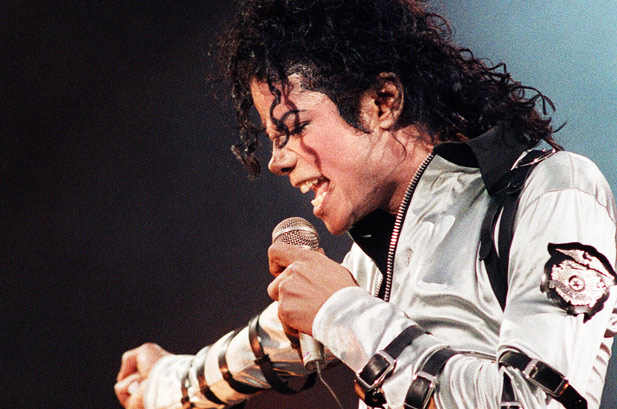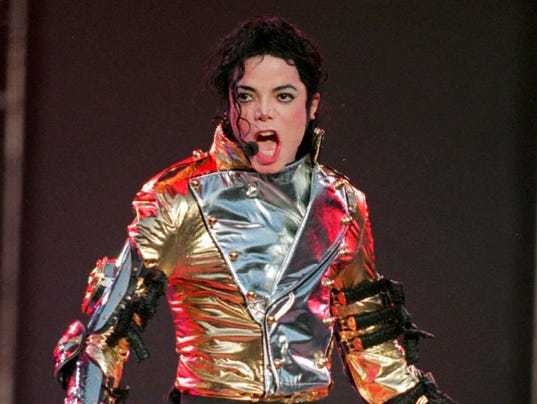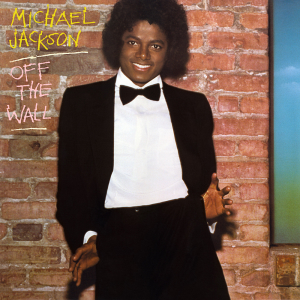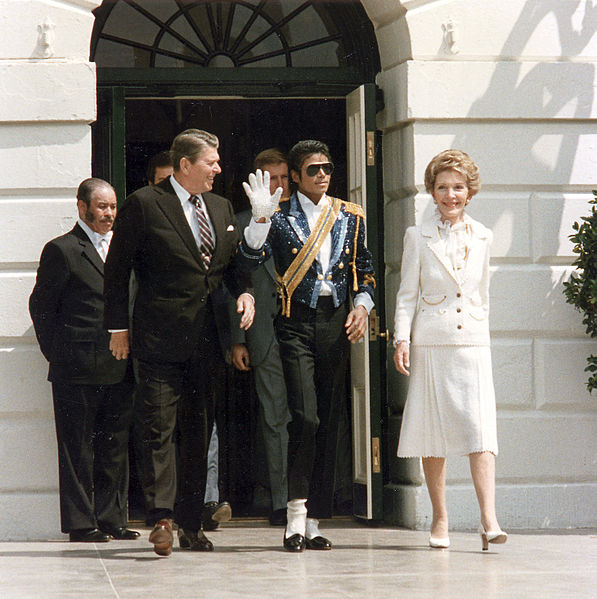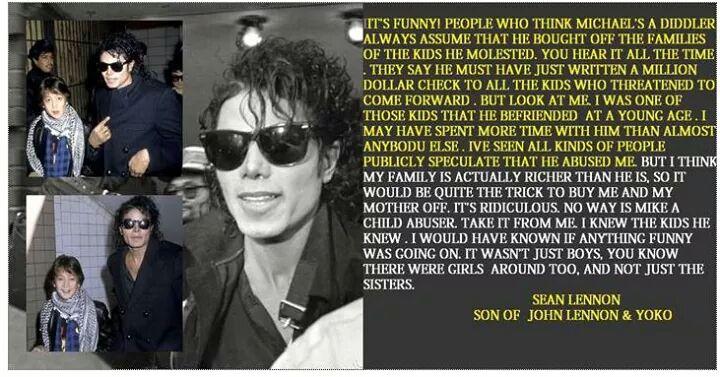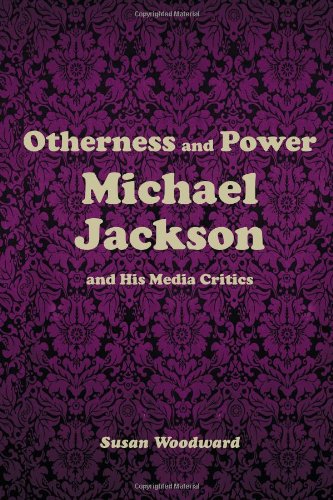Both of the people who now claim offenses previously defended him under oath. Ridiculous.
On another matter. Aren't Journalist interesting. Look at the following two articles. One claims Xscape is a runaway hit, the other claims Xscape was a failure. Isn't this funny?
Negative first( by Roger Fieldman ( I should have know) :
http://www.showbiz411.com...-and-books" target="_blank"> http://www.showbiz411.com...-and-books
Considering all the people who write to me screaming about how they love Michael Jackson, etcetera, etcetera, here’s a question: where are you?
Jackson’s much touted CD of new, unreleased, and reconfigured material has been a bust. Forget proclamations that it’s “number 1 in 50 countries” or other such nonsense. In the United States, after four weeks of sales, “XScape” has sold just 286,000 copies.
That’s it, and it’s around number 25 on the album charts. It’s not coming back, either. “Xscape” had one marketing ploy and it’s over. That was the dancing “hologram” on the Billboard Music Awards.
Meantime, two new books about Jackson, pegged to the fifth anniversary of his death on June 25th, are also flops. “Michael Jackson Inc” by Zach O’Malley Greenburg, has done the worst. It’s ranked around number 16,000– sixteen thousand– on amazon.com. That’s pretty much no sales.
“Remember the Time,” an interesting memoir by two former Jackson bodyguards, has done a little better. Deservedly so. That book is up around number 1,320, which means it’s had some sales, good worth of mouth and online reviews. But it’s no best seller.
Maybe the authors of the books are waiting for the death anniversary to do some publicity. I think they should get going now. Those books are not going to revive themselves. Like the CD, they simply haven’t caught on.
The CD, of course, was a bad idea. Remixing and fiddling with Jackson’s unreleased music was a kind of heresy. It served no purpose. Just releasing the demos as they were would have been plenty.
As it is, many good unreleased songs were thrown out because they’d already been included in the “Bad” 25th anniversary album. There isn’t that much left now in the vaults. Sony would be wise to issue a series of live CDs from concerts.
What do people want of Michael Jackson? The hits, the ones they love, and have ties to. “Billie Jean” and “Beat It” already outlasting the “new” stuff.
Meantime, TMZ has a LOL story about Jackson’s ex-wife and her purported engagement to gay pornographer Marc Schaffel. Apparently, he has a wife. Only on TMZ, my friends, only on TMZ.
Positive :
http://www.usatoday.com/s.../11210697/
Michael Jackson joins posthumous hit parade
Patrick Ryan, USA TODAY 12:53 a.m. EDT June 25, 2014
(Photo: Joerg Sarbach, AP)
For posthumous albums, it can be a tough line to moonwalk: honoring a beloved artist's legacy, while still giving fans something fresh and exciting from their favorite icon. On the fifth anniversary of the King of Pop's death, USA TODAY takes a look at five releases that ignited the charts and gave new life to music legends.
MICHAEL JACKSON, Xscape (2013)
The numbers:
- 309,000 copies sold since its May 13 release, according to Nielsen SoundScan
- Peaked at No. 2 on the Billboard album chart
- 6 weeks on the chart (currently No. 9)
Why it worked: Xscape hasn't sold quite as well as the This Is It concert film soundtrack, which arrived four months after Jackson's death on June 25, 2009 and debuted at No. 1 (selling 373,000 copies its first week). "You don't have this news event that's generating headlines to help promote (the project)," says Keith Caulfield, associate director of charts/sales at Billboard. "They had to find a new way to build interest" in Xscape, which included a Michael Jackson illusion singing Slave to the Rhythm at the Billboard Music Awards, along with a Justin Timberlake-assisted single, Love Never Felt So Good, which peaked at No. 9 on Billboard's Hot 100. Xscape succeeded because "there was a real desire to try and do something that represented the best of what Michael Jackson did," with a sound that is "both recognizable and contemporary," says Rolling Stone contributing editor Anthony DeCurtis. "Some people might think that in itself is problematic, but if you're going to do it, you want to do it in a way that makes sense for the people that are going to hear it."
THE BEATLES, The Beatles Anthology (1995-96)
The numbers:
- Anthology 1, released in November 1995, has sold 3.7 million copies, followed by Anthology 2 (1.8 million) in March 1996 and Anthology 3 (1.4 million) in October 1996
- All three went No. 1
- 29, 37 and 16 weeks on the chart, respectively
Why it worked: As the first release of new Beatles music since 1970's Let It Be, people naturally went crazy for Anthology. "(It) was the mother lode of archival material for a lot of fans and casual fans of The Beatles, because it had songs they had never heard before," including newly completed tracks Free As a Bird and Real Love, says Caulfield. As part of a sprawling project that included a documentary TV series and companion book, the Anthology albums got it right because it was "such a unique project; they haven't had anything quite like (it) since," Caulfield says. Free As a Bird became the band's 34th top 10 single in America, peaking at No. 6 on the Hot 100 and winning a best pop performance Grammy — some 15 years after John Lennon's death on Dec. 8, 1980.
THE NOTORIOUS B.I.G., Life After Death (1997)
The numbers:
- 5.2 million copies sold
- No. 1 in Billboard
- 82 weeks on the chart
Why it worked: Life After Death, released less than three weeks after the rapper's still-unsolved murder on March 9, 1997, was a "simultaneously happy and really somber" effort, says Jezebel staff writer Hillary Crosley. With hit singles such as Mo Money, Mo Problems, Hypnotize and Sky's the Limit, it "really was just the summer album" that year, she says. "That album was just everywhere and it permeated everything." And unlike his 1994 album Ready to Die, which primarily featured East Coast talent, Biggie included artists such as R. Kelly, Bone Thugs-n-Harmony and Too $hort on Life After Death, which helped broaden the appeal. "If you want to break out commercially and take over America, you need to be able to incorporate all the different sounds," Crosley says. His label also did a great job of "realizing the audience, which was teens to college-age (fans)."
JANIS JOPLIN, Pearl (1971)
The numbers:
- 4 million copies sold, according to the Recording Industry Association of America (Pearl was released before SoundScan began tracking in 1991, but has been certified four-times platinum)
- No. 1 in Billboard
- 42 weeks on the chart
Why it worked: Joplin had essentially already completed Pearl before she died on Oct. 4, 1970, of a heroin overdose. The album, released three months later and No. 1 for nine weeks, included Joplin favorites such as Mercedes Benz, Cry Baby and signature song Me and Bobby McGee. "Bobby McGee was the key to the project," DeCurtis says. "In its sense of wistfulness and missing someone, it captured the emotion of millions of fans who were struggling with the fact that Janis Joplin was dead." Combined with the loss of Jimi Hendrix and Jim Morrison, "their deaths signaled the end of an era, that '60s movement in rock," Caulfield says. "It all came crashing down when those three artists passed away in a relatively short span, but the music (Joplin) made on Pearl continues to live on."
SELENA, Dreaming of You (1995)
The numbers:
- 2.8 million sold to date
- No. 1 in Billboard
- 49 weeks on the chart
Why it worked: Before Ricky Martin, Jennifer Lopez, Marc Anthony and Enrique Iglesias crossed over, there was Selena, already a big star on the Latin charts, whose Dreaming of You album was set to be her mainstream break. "It's just such an unfortunate thing, because it was clearly going to be a moment," Caulfield says. "Her music was strong and she was such a charismatic, popular singer, so this album was probably going to be successful" even before she was murdered by her fan-club president on March 31, 1995. Released that July, Dreaming of You spawned top 40 singles such as the title track and I Could Fall in Love, and preceded numerous compilation and live albums. "She's sort of like the Tupac (Shakur) of Latin music, in a way, with a lot more material (released) after she passed away, and her legacy and stardom has grown ever since then," Caulfield says.
Multitalented superstar Michael Joseph Jackson thrilled audiences most of his life, and was on the precipice of a comeback when he died at age 50 on June 25, 2009. The self-proclaimed King of Pop was struggling to avoid bankruptcy when he died June 25, 2009. (Photo: Alain Fulconis, AFP/Getty Images)
[Edited 8/10/14 22:17pm]
 New topic
New topic Printable
Printable moderator
moderator Report post to moderator
Report post to moderator
